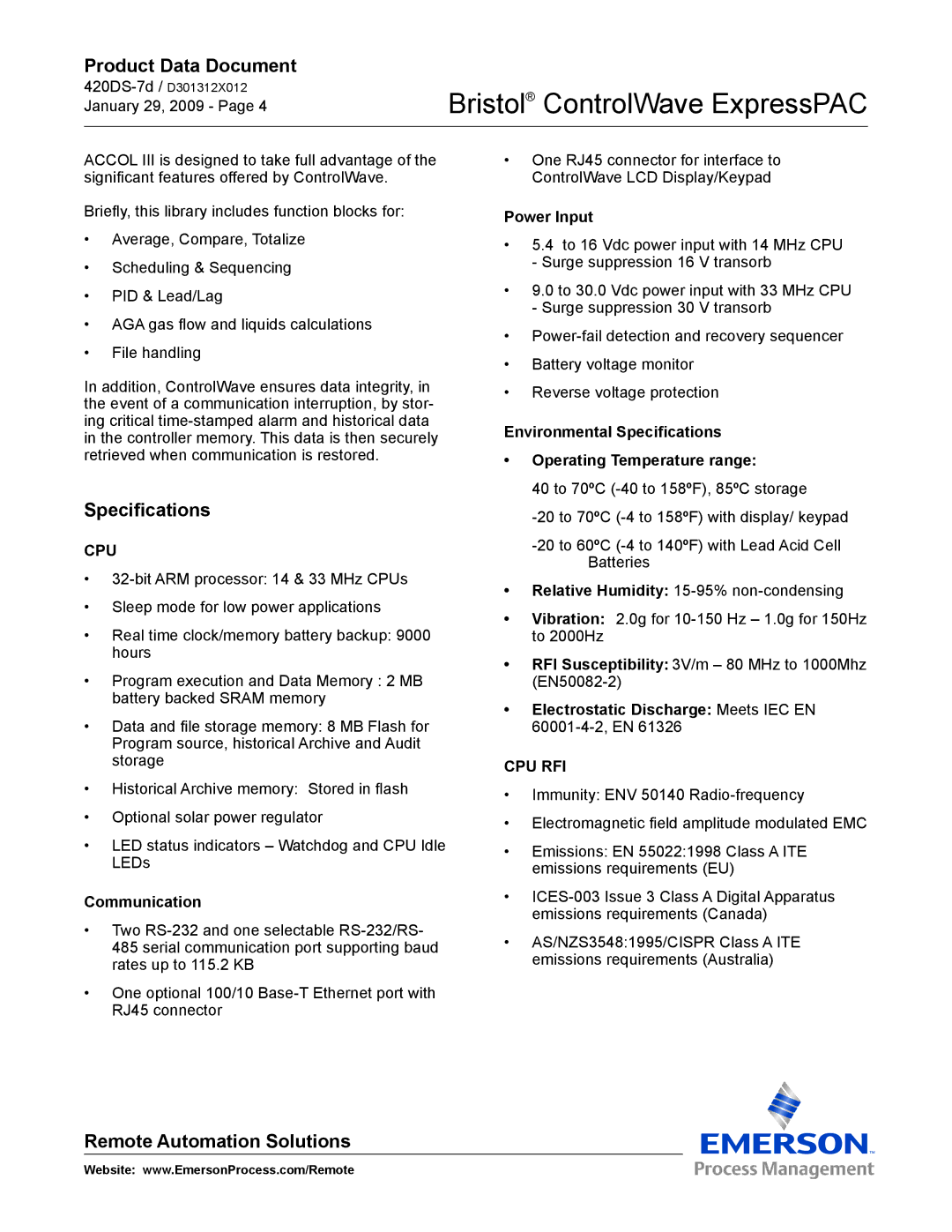ExpressPAC specifications
Emerson Process Management's ExpressPAC is a comprehensive automation solution designed to optimize process management across various industries. As an integral part of Emerson's broader portfolio of process automation technologies, ExpressPAC encompasses a range of features tailored to enhance operational efficiency, ensure safety, and provide flexibility in industrial automation.At the core of ExpressPAC is its innovative architecture, which allows for streamlined integration with existing systems. This solution is built on the robust DeltaV technology platform, providing real-time data acquisition and control functionalities crucial for maintaining process integrity. ExpressPAC employs advanced control strategies, including model-based predictive control, which enables organizations to respond dynamically to changing process conditions, enhancing performance and productivity.
One of the standout features of ExpressPAC is its scalability. It caters to small and medium-sized enterprises while still being capable of expanding to meet the demands of larger operations. This adaptability is reinforced by its modular design, allowing users to easily incorporate additional functionalities and technologies as their operational needs evolve.
ExpressPAC also emphasizes enhanced operational intelligence through its sophisticated data analytics capabilities. By leveraging predictive analytics, users can uncover insights from historical performance data, leading to informed decision-making that drives efficiency improvements. The integration of real-time monitoring tools ensures that processes remain within defined parameters, reducing downtime and increasing throughput.
Safety is paramount in industrial environments, and ExpressPAC addresses this with built-in safety features and compliance support. The system incorporates layer-of-protection analysis (LOPA) methodologies to evaluate risks and implement safety measures effectively. This proactive stance towards safety not only safeguards personnel but also protects assets and the environment.
Furthermore, ExpressPAC capitalizes on the Internet of Things (IoT) through seamless connectivity. The solution supports IoT integration, enabling the collection and analysis of data from various devices and sensors across the production environment. This connectivity lays the groundwork for more intelligent operations, allowing for remote monitoring and control, which is increasingly vital in today’s digital landscape.
In summary, Emerson Process Management's ExpressPAC stands as a versatile and powerful solution in the realm of process automation. With its scalable architecture, advanced analytics, robust safety features, and IoT capabilities, ExpressPAC equips organizations to enhance productivity while ensuring operational safety and integrity. This technology represents Emerson’s commitment to providing solutions that meet the evolving demands of the industrial sector.

